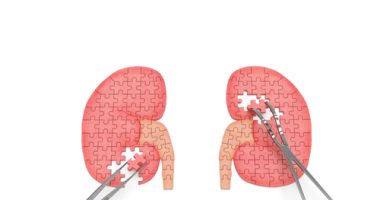Reata Expects Key Trial Results on Kidney Disease Therapy Bardoxolone in Third Quarter

Reata Pharmaceuticals is planning a third-quarter release of key results of a clinical trial assessing bardoxolone methyl‘s ability to treat Alport syndrome-related chronic kidney disease.
The company said it expects the 52-week findings from the Phase 3 portion of the Phase 2/3 CARDINAL trial to support the U.S. Food and Drug Administration giving the treatment accelerated approval. It also said it expects the results to show that bardoxolone methyl offers a long-term benefit.
“Treatment with bardoxolone has resulted in clinically meaningful increases in kidney function in patients with Alport syndrome, CKD [chronic kidney disease] caused by type 2 diabetes, and CKD associated with pulmonary hypertension,” Colin Meyer, Reata’s chief medical officer, said in a press release. “We anticipate that bardoxolone may complement commonly used therapies that modestly affect progression in these diseases, which have no FDA-approved treatments.”
The Phase 2 portion of the global study (NCT03019185) involved 30 Alport syndrome patients. They received increasing doses of the oral therapy once a day, up to a maximum of 30 mg.
Bardoxolone led to meaningful improvements in patients’ kidney function, the 12-week interim results showed. Not only did it improve all of the participant’s kidney filtration rates, but it also improved the chronic kidney disease stage of 73 percent of them.
In addition, it led to a mean reduction in patients’ levels of uric acid, blood urea nitrogen, and phosphorous — signs of the disease.
And it helped patients in both the earlier and later stages of the disorder, researchers added.
Reata is enrolling participants in the Phase 3 part of the trial, which is expected to include up to 150 people. Researchers will assess bardoxolone’s effectiveness and safety at 52 weeks. The time frame will include 48 weeks of treatment and a four-week drug withdrawal period.
After the Phase 3 portion, participants will continue a second 52-week round of treatment and withdrawal.
Reata is assessing bardoxolone’s potential to treat patients with rare chronic kidney diseases in the Phase 3 PHOENIX trial (NCT03366337). The disorders include autosomal dominant polycystic kidney disease and focal segmental glomerulosclerosis.
The company is recruiting participants for the study. It expects to obtain initial results by the second half of 2018.
Bardoxolone was designed to trigger signaling pathways that reduce inflammation and restore mitochondrial activity, problems shared by several diseases. Mitochondria are cell components that generate energy.
Previous clinical trials that included more than 2,600 patients with type 2 diabetes and chronic kidney disease showed that bardoxolone methyl can significantly increase kidney filtration rates and other renal function measures.







Comments